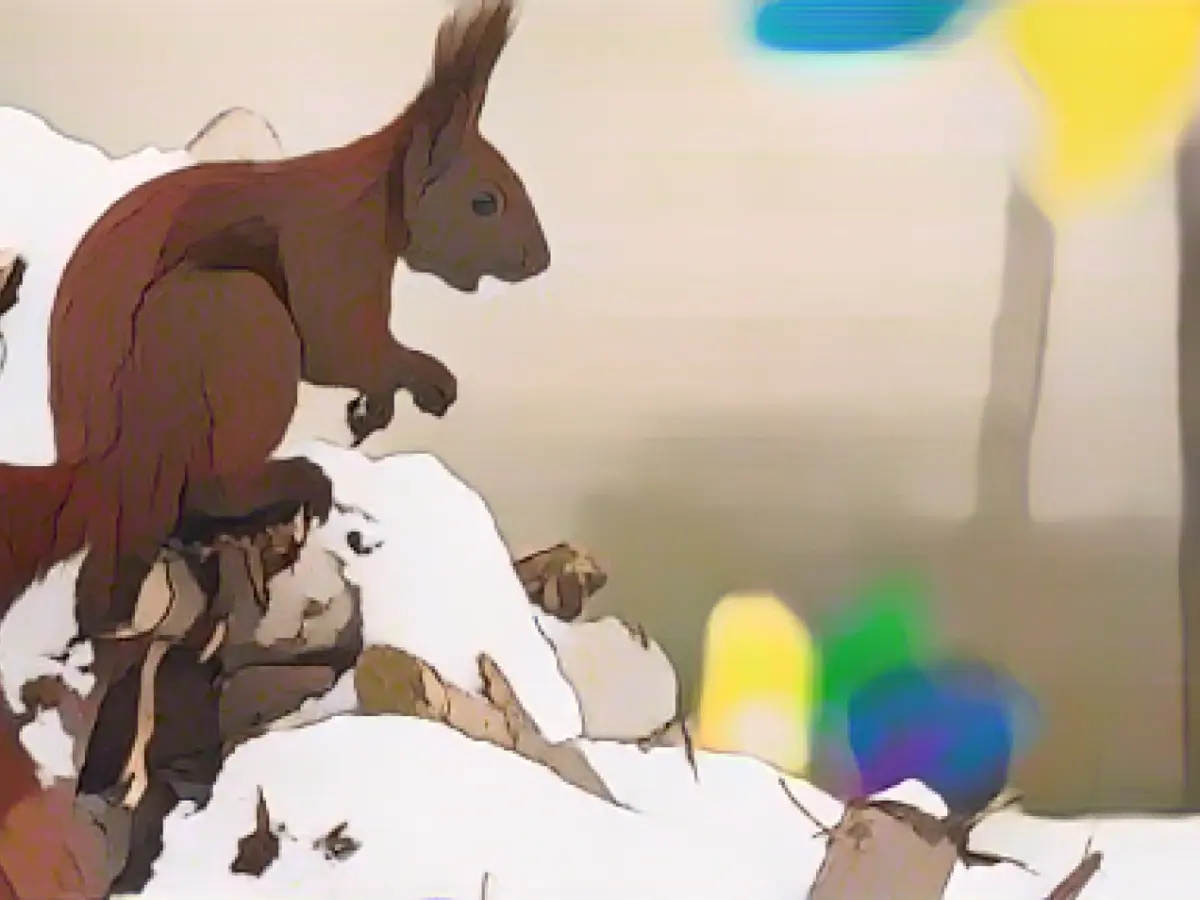Nature - Thaw pretty certain - What this means for wildlife
The expected rise in temperatures in Berlin in a few days will have an impact on some wild animals, but will not put them in danger, according to an expert. Derk Ehlert, wildlife officer at the Senate Department for Mobility, Transport, Climate Protection and the Environment, said in response to an inquiry that hibernating species would not be disturbed by warmer temperatures alone. "But species that hibernate will certainly become active again when it gets a little warmer."
Ehlert cited squirrels and raccoons as examples. "They will get up, run to their food supplies and feed there." This is not unusual. Basically, there is no need to worry - "not even if insects become active again". For example, bumblebees could wake up from their dormancy. But at least now, at the start of winter, a warmer phase is not expected to cause any significant disadvantages.
What the forecast looks like
An imminent thaw is fairly certain, said a meteorologist from the German Weather Service (DWD) in Potsdam on Wednesday afternoon. It is already starting, with temperatures around freezing point. It will get milder and milder until the weekend. Temperatures could rise to four degrees on Saturday and six degrees on Sunday, said the meteorologist. The reason for this is warmer air coming in from the Atlantic.
Animals such as hedgehogs and bats that hibernate will only wake up again when temperatures are permanently higher, said Ehlert. The reason: additional signals, such as the incidence of light, are crucial for the wake-up call. The fact that several mechanisms are necessary is also due to the fact that waking up unnecessarily from hibernation costs the affected animals a lot of energy. But they need it to survive this time. The animal world is generally well adapted to capricious weather conditions, said Ehlert. Animals are more likely to be disturbed or confused if there are frequent changes between warmer and colder phases.
Winter frost not so decisive for pest occurrence
According to Ehlert's assessment, the frost in the past few days was nowhere near enough to decimate populations of plant pest larvae, for example. "It is often the conditions in spring that determine how certain insect populations develop," he said, referring to leaf miners and aphids, for example.
Very mobile animals such as birds could use a warmer phase to move elsewhere if necessary. "For many geese, for example, which rest here in Germany during the winter months, it's not so bad when it gets warmer because the snow disappears from the areas and they have better access to food." Ehlert appealed to garden owners, for example, to make it easier for birds to find food by planting things like rowan trees: they can easily fly to them, even if the ground is covered in snow. Other forms of help for wild animals are not necessary.
DWD: Forecast for Berlin and Brandenburg
Read also:
- Will he be convicted as Jutta's murderer after 37 years?
- He also wanted to kill his cousin
- With live stream! Gawkers film dying man
- Is Saarland threatened with economic collapse?
- Derk Ehlert, the wildlife officer in Berlin's Senate Department for Mobility, Transport, Climate Protection and the Environment, mentioned squirrels and raccoons as animals that might become active due to the approaching warmer weather.
- According to Ehlert, animals like hedgehogs and bats will only awaken from hibernation when temperatures significantly increase, as additional factors such as light levels are crucial for this process.
- The German Weather Service (DWD) predicted a rise in temperatures in Berlin over the weekend, reaching up to six degrees by Sunday, a change attributed to warmer air coming from the Atlantic.
- Ehlert suggested that garden owners could help wild animals during warmer phases by planting trees like rowan, which can provide food even when the ground is covered in snow.
Source: www.stern.de








